1. African buffalo
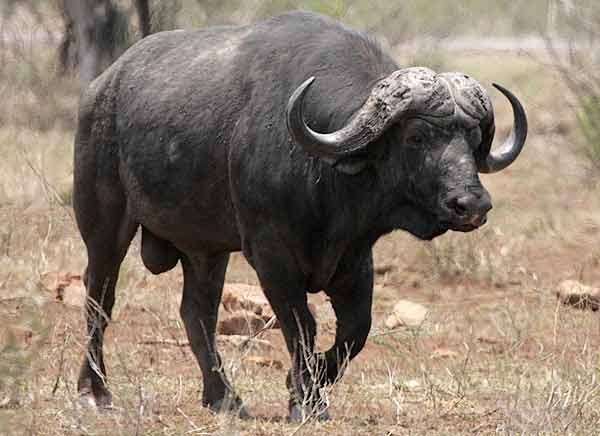
The African buffalo numbering around 900,000 animals, found in sub-Saharan Africa, is a fairly gentle species, often in large herds, looking for grass in the early morning and late afternoon or looking for a place with water to drink. But if someone is threatened, they become extremely aggressive. This animal has killed more hunters on the continent than any other species. The adult wild buffalo can be over 1.8 meters tall and weigh almost 1 ton. In pursuit of prey, it can run at a speed of 60 km / h and does not stop even if injured. They also do not hesitate to face a moving vehicle. You certainly don’t want to be “aggressive” with this animal.
2. Conical cone
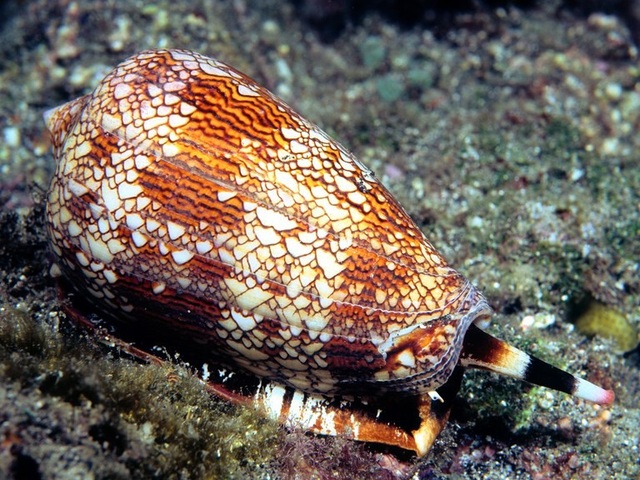
Found in the warm waters of the tropics (Caribbean, Hawaii, and Indonesia), you can easily recognize it with a golden brown outer shell, typically living in shallow depths near shore, near coral reefs, rock formations and under sand. But don’t foolishly touch the lower abdomen where the false “teeth” contain a complex venom that makes it one of the most unique snails. The poison prevents nerve cells from assembling, leaving the victim instantly paralyzed, and it takes just long enough to smoke a cigarette before dying.
3. The Gold Frog Poison Dart
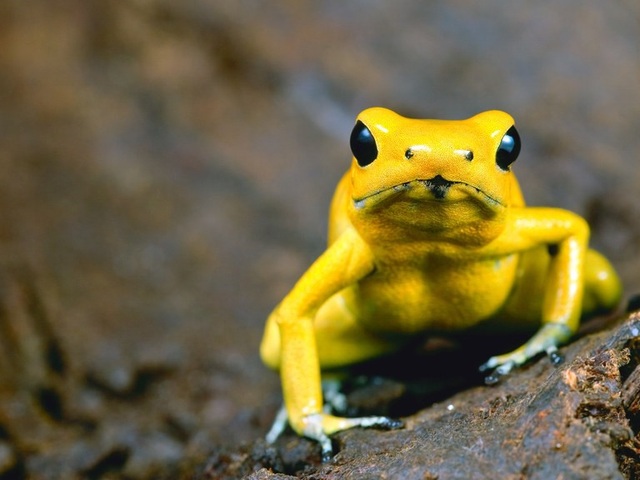
The dart frog is a brightly colored frog that lives primarily in South North America, of which only a few species are particularly dangerous to humans. The nastiest animal lives in the small rainforest along Colombia’s Pacific coast, which is around 5cm long. Its poison, called batrachotoxin, is so powerful that one frog is enough to kill ten adult males. But what makes this amphibian particularly dangerous is that its poisonous glands are located under the skin, which means that a simple touch is enough. Deforestation has put the frog on a list that is on demographic alert. But even if you see this rare animal, stay away from it.
4. Jellyfish box
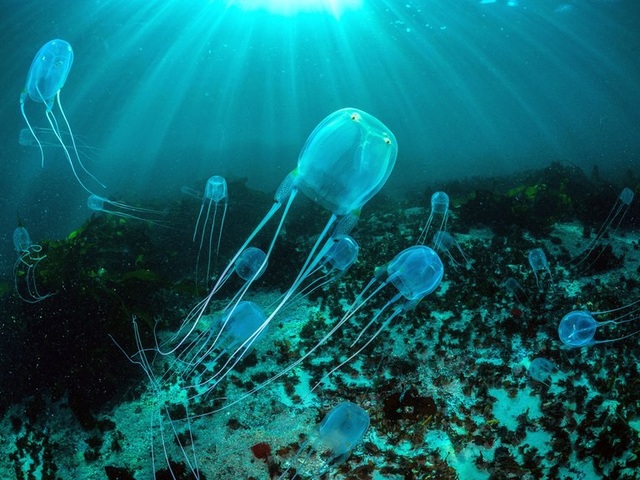
Jellyfish float (or move at speeds of nearly 5 miles per hour) in the Indo-Pacific waters of northern Australia, an almost invisible and nearly invisible species listed by Australia’s National Oceanic Administration atmosphere in one of the most poisonous marine animals in the world. Their rectangular bodies can contain up to 15 tentacles at the corners, each over 8 inches long, containing thousands of dendritic cells that simultaneously attack the heart, nervous system, and skin cells. The venom is so strong and overwhelming that hundreds of victims each year are shocked and die of heart failure before leaving. Even with the luck of being taken to the hospital and taking the antidote, the survivor still suffers several weeks afterward and bears uncomfortable scars from the animal’s tentacles.
5. Pufferfish
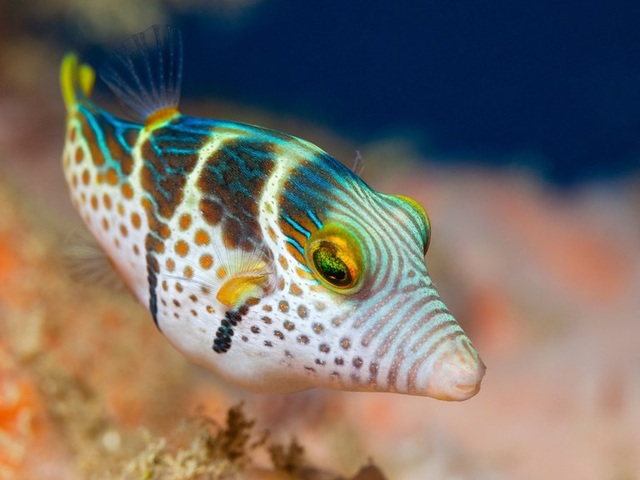
The pufferfish are commonly found in tropical waters around the world, especially Japan, China, and the Philippines. Although they are the second most toxic vertebrates on the planet (after the yellow dart frog), they can be more dangerous because the neurotoxin (also known as tetrodotoxin) is found in many places such as the skin and fish tissue. muscles, liver, kidneys and gonads. Pufferfish is used as fugu in Japan, but only well-trained chefs are allowed to cook it. The toxic tetrodotoxin is 1,200 times more toxic than cyanide and can cause dizziness, vomiting, arrhythmia, breathing difficulties, muscle paralysis and, if left untreated, death.
6. Black mamba snake

The king cobra is famous for being dangerous for its poison, while the black mamba is famous for its speed of destruction. Typically inhabiting the steppe and rocky mountains of southern and eastern Africa, the mamba is the fastest snake species, its crawling speed can reach 20 km / h, making it difficult for victims to escape. in the rocky mountains. deserted. Black mamba snakes attack only when threatened. But then they will bite continuously. Each bite will impart 1 amount of poison sufficient to kill 10 people. And if the victim does not receive the antivenom within 20 minutes, the risk of death will be almost 100%.
7. Tsetse flies
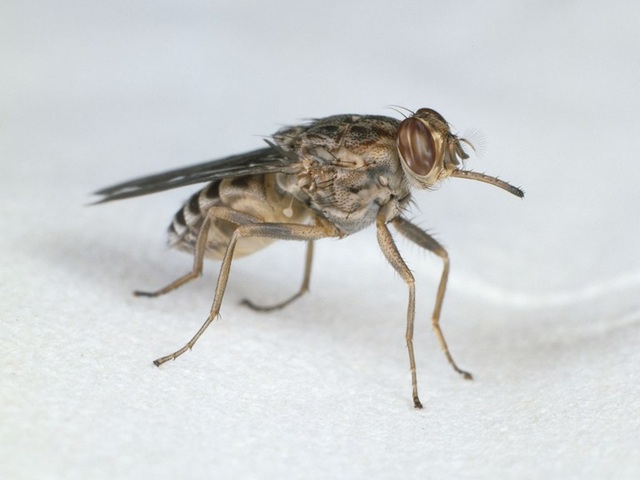
Considered the most dangerous fly in the world, a tsetse fly is a small insect measuring 8 to 17mm in size, or the size of a house fly – common in sub-Saharan countries, including Sudan, the Republic Democratic Republic of the Congo and Angola. While they themselves are bloodsuckers, their real fear lies in the protozoa they pass on, called trypanosomes. These pathogens are the cause of wet sleep in Africa, a disease marked by neurological and meningoencephalitic symptoms including behavioral changes, poor coordination, as well as cycle disorders. to sleep. It can be fatal if left untreated. Although there are no vaccines and drugs to prevent them, people can protect themselves by wearing neutral clothing (tsetse flies are attracted to light and dark, especially blue). bushes during the day and use permethrin insect sprays when traveling to more remote areas.
8. Mosquitoes
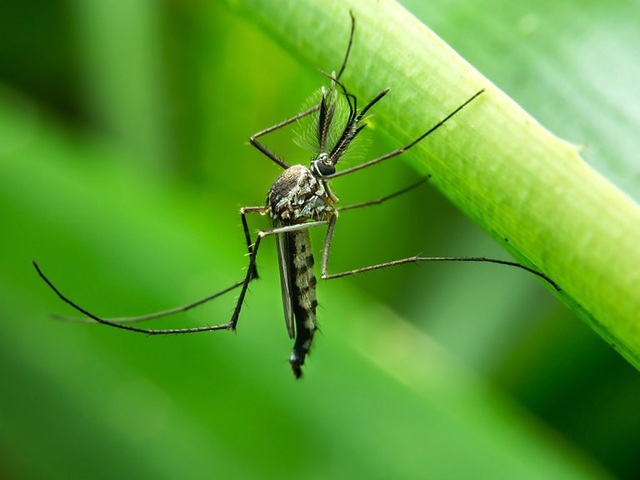
The smallest mosquito, only about 3mm in size, is classified as dangerous because it kills large numbers of people every year from the spread of different pathogens. This nasty insect, mainly mosquitoes of the genera Aedes, Anopheles and Culex – are the main causes of malaria, Chikungunya, encephalitis, dorsal fin, yellow fever, dengue, western virus. The Nile and the Zika virus infect around 700 million people and kill around 725,000 people each year. The World Health Organization notes that more than half of the human population is at risk of disease caused by mosquitoes because this species is attracted to body temperature and human CO2 emissions. The best prevention is to use insect repellents with high active ingredients such as DEET and picaridin.


